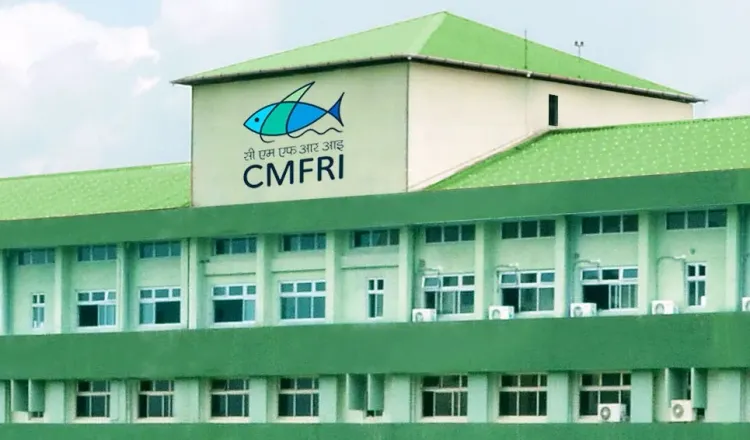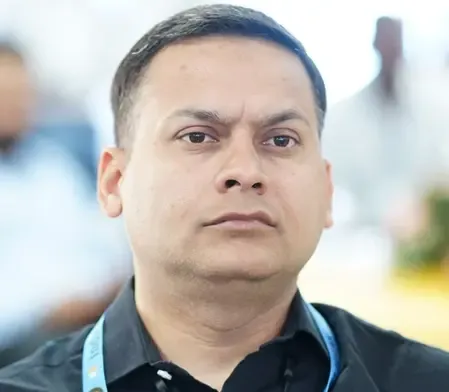What Makes CMFRI's Lakshadweep KVK the Best in Agricultural Extension?

Synopsis
Key Takeaways
- Recognition: Lakshadweep KVK awarded the Best KVK-National Award.
- Organic Farming: Pioneered the declaration of Lakshadweep as an organic territory.
- Community Impact: Supported 7591 farmers in adopting organic practices.
- Innovation: Promoted seaweed cultivation and aquaculture techniques.
- Employment Generation: Created jobs through skill development initiatives.
Kochi, June 3 (NationPress) The Lakshadweep Krishi Vigyan Kendra (KVK) under the ICAR-Central Marine Fisheries Research Institute (CMFRI) has been honored with the Best KVK-National Award by the National Academy of Agricultural Sciences (NAAS) in New Delhi, along with Dhanuka, for its outstanding contributions to agricultural extension.
The KVK's innovative initiatives, which led to the declaration of Lakshadweep as an organic territory, were instrumental in earning this prestigious accolade.
With the registration of an impressive 7591 active farmers across ten islands, the KVK has championed the adoption of organic farming techniques.
Thanks to support from the Department of Agriculture and the Union Territory Administration of Lakshadweep, the region was officially recognized as a fully organic territory by the Union Government in 2021.
The promotion of seaweed farming through the popularization of CMFRI's indigenous technology significantly contributed to this recognition.
Numerous extension activities in coconut development, fisheries, and aquaculture, led by Dr. P N Ananth, Principal Scientist and Head of KVK-Lakshadweep, have been vital in enhancing the quality of life for the local population, playing a substantial role in securing the award.
Through comprehensive skill development initiatives, the 'Friends of Coconut' program by Lakshadweep KVK has created job opportunities for 100 rural individuals.
The establishment of a marine ornamental fish hatchery in Kavaratti has encouraged sustainable aquaculture practices in the region, opening new avenues for livelihoods.
Efforts to promote CMFRI's cage culture technology have been essential in diversifying income sources for the fishing community.
The KVK has facilitated vegetable and fruit farming, reaching approximately 2,000 households annually, supported by CMFRI’s Tribal Sub Plan scheme.
To tackle rodent damage, which causes 40-50 percent yield loss in coconuts across the islands, KVK has introduced Barn Owls as a biological control method.
Additionally, an Automatic Weather Station (AWS) has been established at Kavaratti, providing essential meteorological data to farmers for improved agricultural planning and disaster preparedness.
Several flagship programs are currently being implemented in collaboration with the Department of Agriculture.









